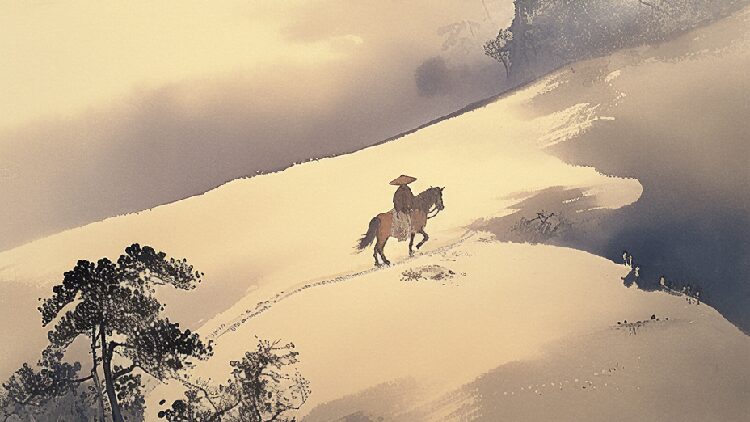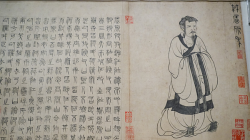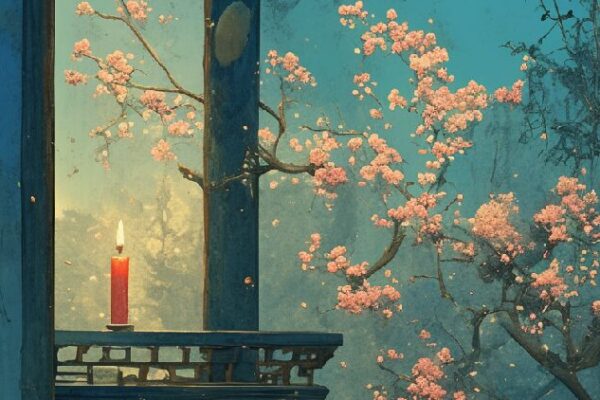Stepping into Autumn’s Lament: Ma Zhiyuan’s ‘Heavenly Pure Sand’
In the realm of classical Chinese poetry, few works encapsulate profound emotion as succinctly as Ma Zhiyuan’s “Heavenly Pure Sand: Autumn Thoughts.” Written during the Yuan Dynasty (c.1250-1321), this poignant quatrain takes readers on a melancholic journey through a desolate landscape, mirroring the inner sorrow of a weary traveler.
Withered vines, old trees, crows at dusk,
A small bridge, flowing water, cottages hushed.
Ancient road, west wind, a lean horse plods,
The sun sinks low –
A heartbroken traveler, lost and alone.
Through vivid imagery, Ma Zhiyuan paints a solitary scene: withered vines cling to old trees as crows circle in the fading light. A small bridge arches over quiet waters, leading to silent cottages. Along an ancient road, a lean horse trudges against the west wind, bearing a traveler whose heart is heavy with melancholy.
The Universal Theme of Loneliness
The poem resonates across time and cultures, touching on universal feelings of loneliness and homesickness. The simplicity of the scene belies the depth of emotion conveyed. For many young people today, especially those who have moved away from home for education or work, the feelings depicted are all too familiar.
A Bridge Between Past and Present
Despite being written over seven centuries ago, “Heavenly Pure Sand: Autumn Thoughts” continues to speak to modern audiences. It serves as a reminder that human emotions are timeless. The melancholy of changing seasons, the longing for home, and the sense of isolation are experiences that transcend historical boundaries.
Finding Solace in Poetry
As we navigate our own journeys, Ma Zhiyuan’s words encourage us to acknowledge our feelings and find comfort in shared experiences. Poetry connects us to others and to ourselves, offering solace in moments of solitude.
So next time you feel lost or alone, remember the traveler in Ma Zhiyuan’s poem. His journey mirrors ours, and through understanding his sorrow, we may find a path toward hope and companionship.
Reference(s):
cgtn.com








